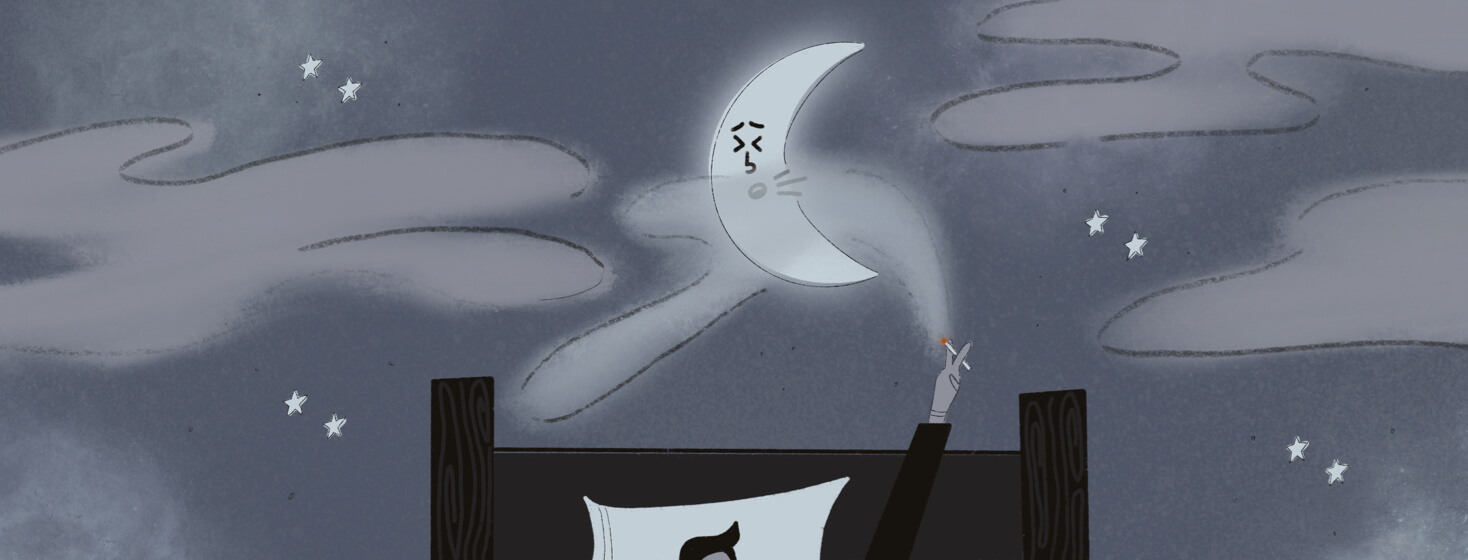The Effects of Smoking on Sleep
It is a well-known fact that smoking cigarettes has countless negative impacts on the human body. Most of these we are aware of, such as lung cancer, cardiac disease, strokes, and many more.
But do most of us with narcolepsy realise that smoking also impacts sleep quality?
What research says about smoking's impact on sleep quality
A 2019 study discussing the effects of smoking on sleep quality revealed that participants who were smokers reported poor sleep quality at baseline, and poorer sleep quality at baseline was associated with increased withdrawal, cravings, and overall urge to smoke.1
Throughout my research, it became obvious that nicotine is the main culprit for this as it can stimulate the release of certain neurotransmitters that are essential in regulating the sleep-wake cycle.2
In other recent research, people who smoke have been shown to have longer sleep onset latency. As we know, sleep latency is the amount of time that it takes to fall asleep, so it makes sense that if nicotine acts as a stimulant, it will undoubtedly have a significant impact on rousing alertness. People who smoke also commonly report shorter sleep duration than non-smokers.3
Other sleep disturbances in people who smoke
There are two additional sleep-related side effects to cigarette smoking that have been detected.
It has been suggested that people who smoke can have an increased risk of snoring, which can impact sleep quality and cause difficulties in daytime functioning.4
Another effect is related to dreams. Some studies have observed that smokers have "significantly more disruptive events" during sleep, such as leg movement, and a "significantly greater prevalence of nightmares and disturbing dreams" specifically in men who smoke versus men who do not smoke.3
Evidently, this combination of elements is not likely to equate to a good night's sleep.
Narcolepsy symptoms are exacerbated by sleep problems
As people living with narcolepsy, sleep is probably one of the biggest problems affecting how we conduct our lives. As most of us probably know, disrupted nighttime sleep and insomnia are two symptoms that exacerbate excessive daytime sleepiness — arguably one of the most trying symptoms of narcolepsy.
Considering that we inherently struggle with sleeping at night and staying awake throughout the day, smoking cigarettes will presumably only worsen these symptoms. If we wish to avoid aggravating our (already poor) relationship with sleep, we should, without a doubt, refrain from smoking.
Advice from a smoker with narcolepsy
Having been a smoker for longer than I would like to admit, unearthing this information has been an eye-opening experience. Smoking is not something that I am proud of, and unfortunately is a terrible habit that I still have not managed to quit.
Following this research, I can understand that while my narcolepsy is hard enough to live with, smoking has certainly only made things more difficult than I ever imagined. I aim to make it my top priority to give up this detrimental habit and hope that anyone who finds themselves in a similar position feels inspired to do the same.
Are you a smoker with narcolepsy? Do you find that the side effects of nicotine impact your sleep? Share with us in the comments below.

Join the conversation